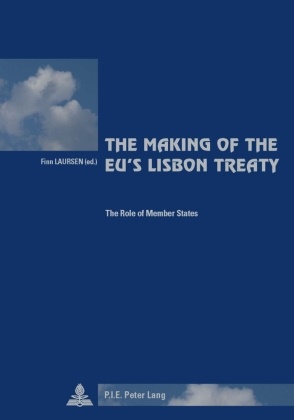Ulteriori informazioni
The European Union (EU) has gone through a number of treaty reforms since the establishment of the European Communities in the 1950s and the creation of the European Union by the Maastricht Treaty in 1992. The latest such reform is the Lisbon Treaty, which entered into force in 2009.
In this book, a number of scholars explore the process of producing the Lisbon Treaty. The focus is on the role of member states, arguably the 'masters of the treaty.' Intergovernmental conferences have become the main setting for treaty reforms since the Single European Act (SEA) in the mid-1980s. This makes national preferences and inter-state bargaining important when new treaties are negotiated.
The Lisbon Treaty delineates a number of institutional changes. In the end the product has to be evaluated against the standards established at the outset. Will the treaty improve the efficiency, democratic legitimacy as well as the coherence of the Union's external action, as the member states claimed it would? While the final text of the treaty leaves the EU with some new institutional possibilities, it also has its limitations, especially in the area of foreign and security policy.
Sommario
Contents: Finn Laursen: The Lisbon Treaty. The Treaty-Making Process - Hans J. Lietzmann: A Symbolic Revocation of Symbolism. The German Path from the EU Constitution to the Lisbon Treaty - Frank R. Pfetsch: Germany's Role with Regard to the Reform Process of the EU - Bernard Barthalay: France and Lisbon. Back to the Future - Alasdair Blair: Britain and the Negotiation of the Lisbon Treaty - Federiga Bindi/Luigi Gianniti: Italy and the Making of the Lisbon Treaty - Joaquín Roy: The Lisbon Treaty and Spain. Background, Context and Impact - Lenka Rovná/Zuzana Kasáková: The Czech Republic, an Uncomprehending and Difficult Partner? - Maciej Wilga/Ireneusz Pawel Karolewski: Poland Fighting its Cause in the EU. A Long Story about the Lisbon Treaty - Finn Laursen: Denmark and the Ratification of the Lisbon Treaty. How a Referendum was Avoided - Declan J. Walsh: Ratification by Referendum. How Ireland Changed from No to Yes - Gavin Barrett: A Rough Passage. Lessons from the Experience of the Ratification of the Lisbon Treaty in Ireland - Finn Laursen: The Making of the Lisbon Treaty. National Preferences, Inter-state Bargaining and Theoretical Debates.
Info autore
Finn Laursen, PhD in Political Science (1980), University of Pennsylvania, Philadelphia, USA, holds a Canada Research Chair as well as an
ad personam Jean Monnet Chair in EU Studies at Dalhousie University, Halifax, Nova Scotia, Canada. He is also Director of the EU Centre of Excellence (EUCE) at Dalhousie. Before moving to Canada in 2006, he taught at the University of Southern Denmark. He has published extensively on various aspects of European integration.

